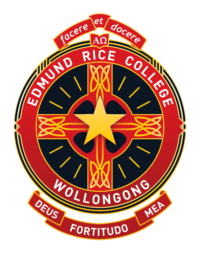Preparing students for work, citizenship and life in the 21st century is both exciting and challenging. According to recent studies, ‘Globalization, new technologies, international competition, changing markets, and transnational environmental and political challenges all drive the acquisition of skills and knowledge needed by students to survive and succeed.’
Wagner (2010) and the Change Leadership Group at Harvard University identified a crucial set of competencies and skills which students need to develop to be prepared for the workforce. Informed by several hundred interviews with business, non- profit and education leaders, Wagner stressed that students need seven survival skills to be prepared for twenty-first century life, work and citizenship:
- Critical thinking and problem solving
- Collaboration and leadership
- Agility and adaptability
- Initiative and entrepreneurialism • Effective oral and written communication
- Accessing and analysing information
- Curiosity and imagination
Collaboration, problem-solving, critical thinking, imagination, communication, agility and empathy- these are the profound experiences and learning that a properly implemented Creative Arts curriculum offer. The Creative Arts provide the logical conduit through which these capacities and related skills, in both the social and emotional domains, can be developed.
Why is it beneficial to study an elective Creative Arts subject? Creative Arts subjects are integral for the development of the identified skills needed for the 21st Century. Students learn about culture and community through a study of the Creative Arts. Each art form has its own unique skills, concepts and a capacity to inspire and enrich lives.
Visual Arts
Students who study Visual Arts as an elective investigate the world through visual imagery. Visual Arts provides students with the opportunity to develop their own artworks, culminating in a ‘Body of Work’ in the HSC course. Students engage in critical and historical study of the artworld to investigate artists, artworks, worlds and audiences from a range of cultural, political, historical and social perspectives and use these to inform their own artmaking practices.
Through the making of their own artworks and the critical and historical studies of artists, art historians and art critics, students are exposed to a variety of issues which instigate critical dialogue and discussion. Students learn to discern signs, symbols and visual codes layered in artworks and make critical judgements.
HSC Visual Arts
Visual Arts students at Edmund Rice College perform very well in the HSC with the majority of students counting Visual Arts as the subject which contributed the most towards their ATAR. Students create a Body of Work worth 50% of their mark and sit an examination based on Critical and Historical studies also worth 50% of their mark. In 2020 33% of the Class were awarded a Band 6. In 2019, 87% of the class were awarded a Band 6 or Band 5. Visual Arts has performed well above State average in the HSC for the past 5 years and continues to afford the students significant learning gain which is positive for their ATAR. ArtExpress Edmund Rice College is well represented each year in
ArtExpress.
ArtExpress is an annual series of exhibitions of exemplary artworks created by Visual Arts students for HSC examination. The following boys have been nominated over the past few years indicating that their artwork is in the top 1% of the state:
- Fletcher Middlebrook-Mitchell – 2021 ArtExpress Nomination- Photomedia
- Riley Huisman – ArtExpress 2020 Hazelhurst Regional Gallery – Drawing
- Isaac Plumridge – ArtExpress 2020 Art Gallery of NSW- Photomedia
- Harrison Trad – ArtExpress 2020 Nomination – Photomedia
- James Lindley – ArtExpress 2019 – The Armory, Newington – Photomedia
- Dylan Potter – ArtExpress 2018 Gosford Regional Gallery- Photomedia
Visual Arts students have gone on to study a number of courses including Architecture, Medicine, Law, Teaching, Graphic Design, Software Engineering, Multimedia Studies, Mobile App Development, Marketing, Video Games Development and Web Development, just to name a few.
Music
According to Forbes Business Magazine, ‘High School students do better in Science, Mathematics and English if they also take Music lessons’. Eva Amsen – Science Writer Forbes Business Magazine. Comparing the test scores of students who took music classes with those of their peers, the musicians got higher grades in a range of different school subjects.
“Learning to play a musical instrument and playing in an ensemble is very demanding,” says Martin Guhn, one of the researchers involved with the study, “A student has to learn to read music notation, develop eye-hand-mind coordination, develop keen listening skills, develop team skills for playing in an ensemble and develop discipline to practice.”
The HSC Music course provide students with the opportunity to study the concepts of music through the learning experiences of performance, composition, musicology and aural within the context of a range of styles, periods and genres. Students nominate three electives made up of any combination of performance, composition and/or musicology which reflect the three topics studied in the HSC course. Stage 6 Music 1 Syllabus.
Music students at Edmund Rice College perform very well in the HSC and many continue on to tertiary studies in Music, with the Sydney Conservatorium of Music being a popular destination! In 2019, 87% of the class received Band 6 and Band 5 and in 2020, 88% of the class received a Band 5. HSC music students regularly perform above the State Average.
Encore
ENCORE is a program of outstanding performances and compositions by students from the Higher School Certificate Music examinations. In 2019 Michael Dominos was nominated to perform at the Sydney Opera House.
Drama
Drama continues to be popular at Edmund Rice College, especially Drama Club in the junior years which is where the students build their skills for study in Stage 6. The HSC Drama course provides students with the opportunity to engage in collaborative and individual experiences to develop skills in interpretation, communication, performance and critical analysis. Students engage with the cultural traditions and social contexts of drama and theatre through critical study and experiences in practical workshop activities and performances.
In our 21st century environment, effective communication is crucial. The study of drama develops verbal and nonverbal, individual and group communication skills. Drama enhances students’ artistic and creative abilities and affords them a better understanding of themselves and their world. Through an exploration of drama contexts relating to identity, societies, cultures, ideologies, gender, time and change, students are able to become more critically reflective members of society. In Drama students are able to explore intellectual, social, physical, emotional and moral domains through learning which involves thought, feeling and action. Drama fosters self discipline, confidence and team work and develops skills in interpreting, researching, negotiating, problem solving and decision making.
In conclusion
Students who are involved in the Creative Arts ‘have higher engagement in class, self-esteem, and life satisfaction’. The study of Creative Arts develops emotional intelligence, confidence and resilience, discipline and commitment, communications skills, identity and belonging, creativity and problem-solving skills and coordination. The Creative Arts staff are educators who are also current practitioners in our fields, ensuring that the boys we teach are conscious of new trends and technologies in the Creative Arts both Nationally and Internationally. Through our rigorous curriculum, we encourage the boys to take risks with their learning, learn from mistakes, experiment, develop the ability to work independently and follow their passions.
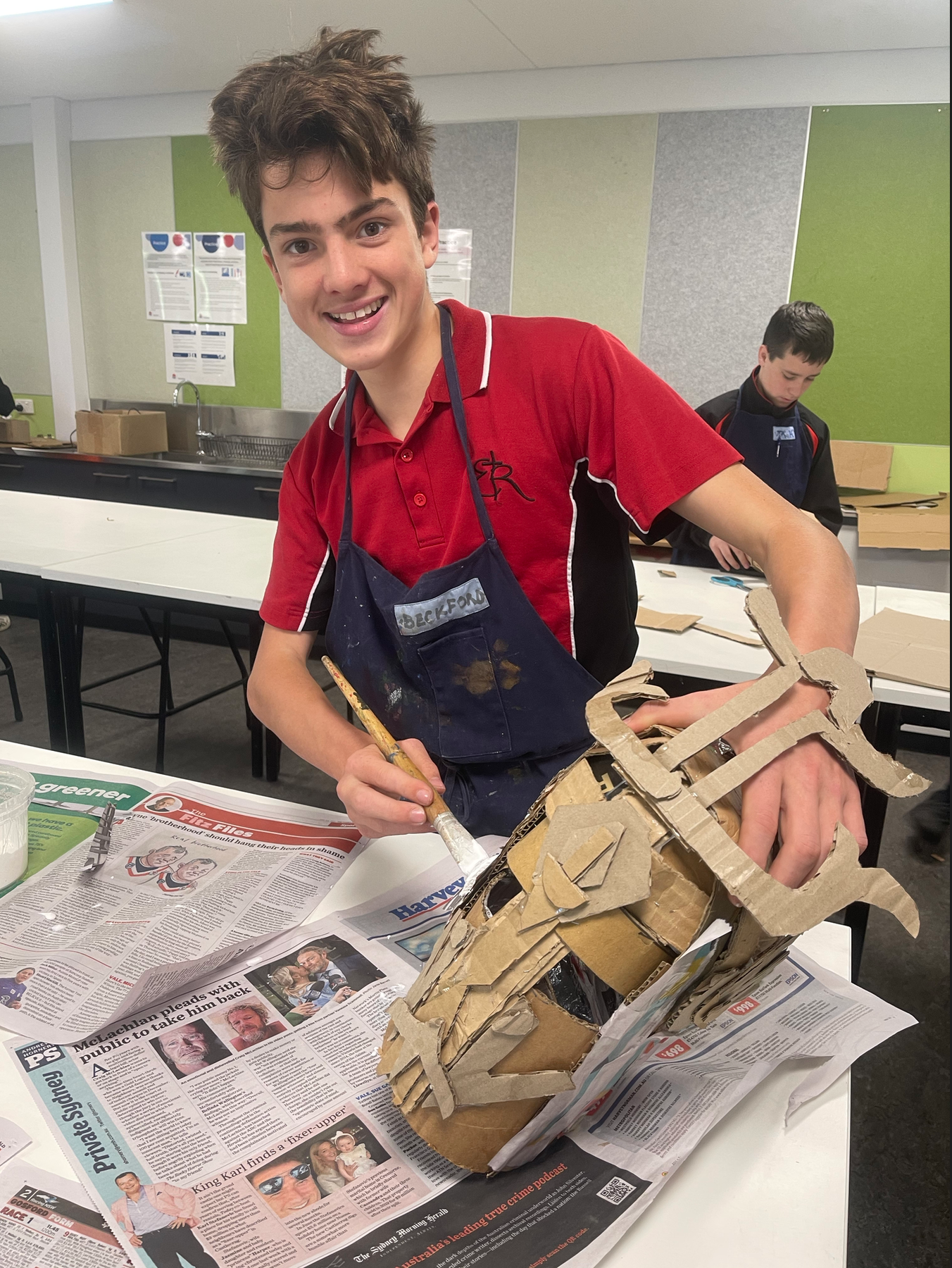 |
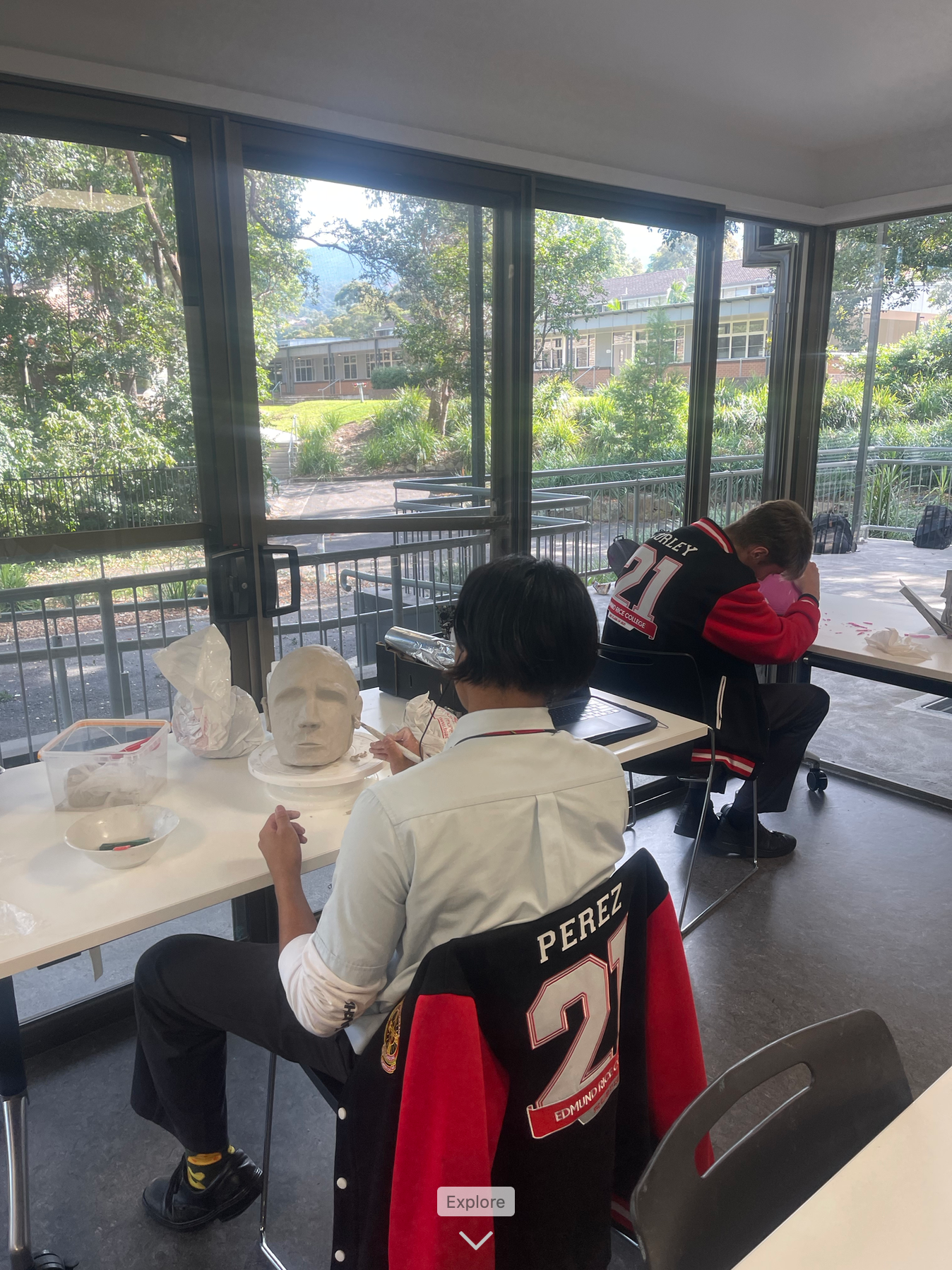 |
|
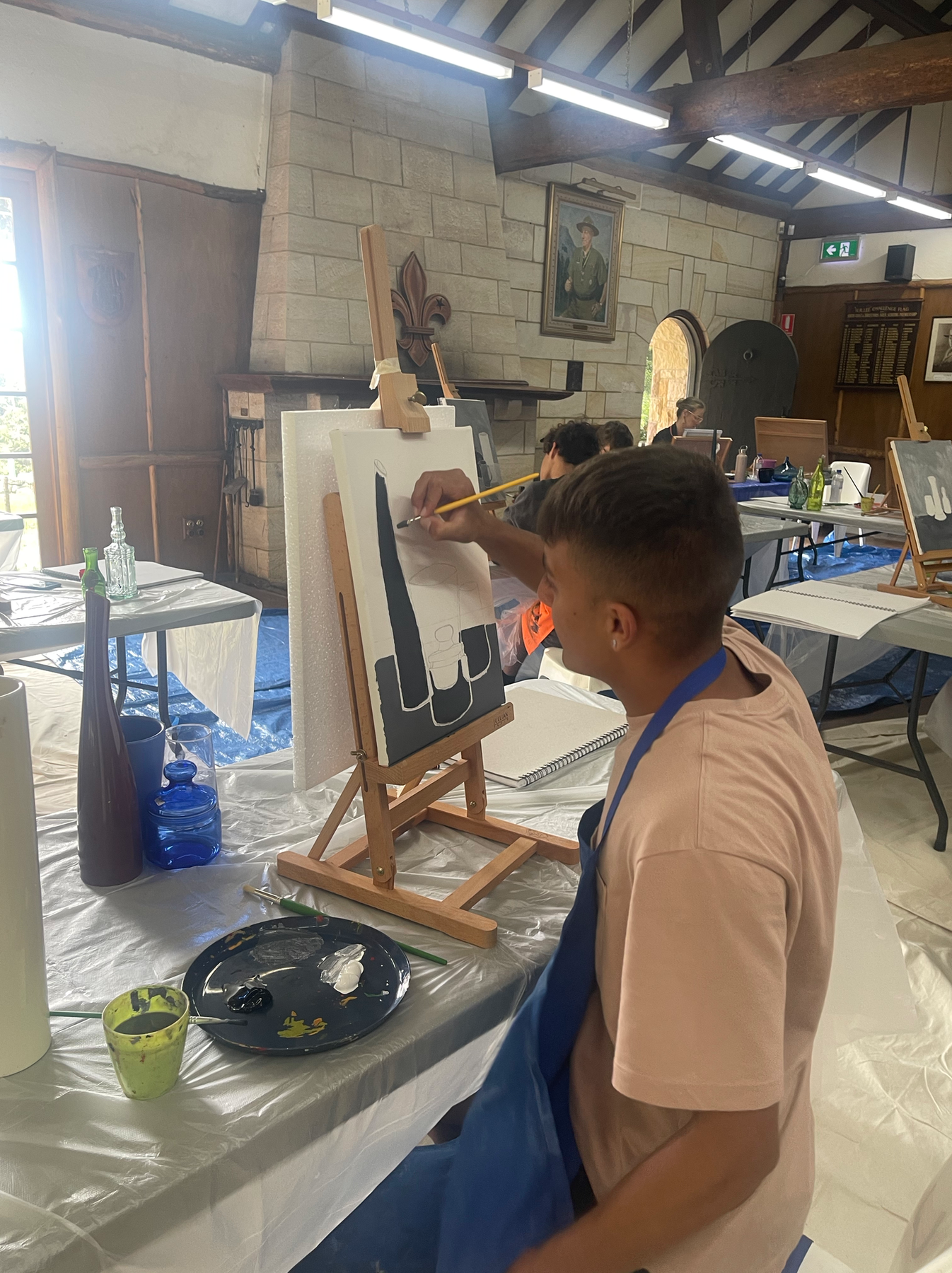 |
||
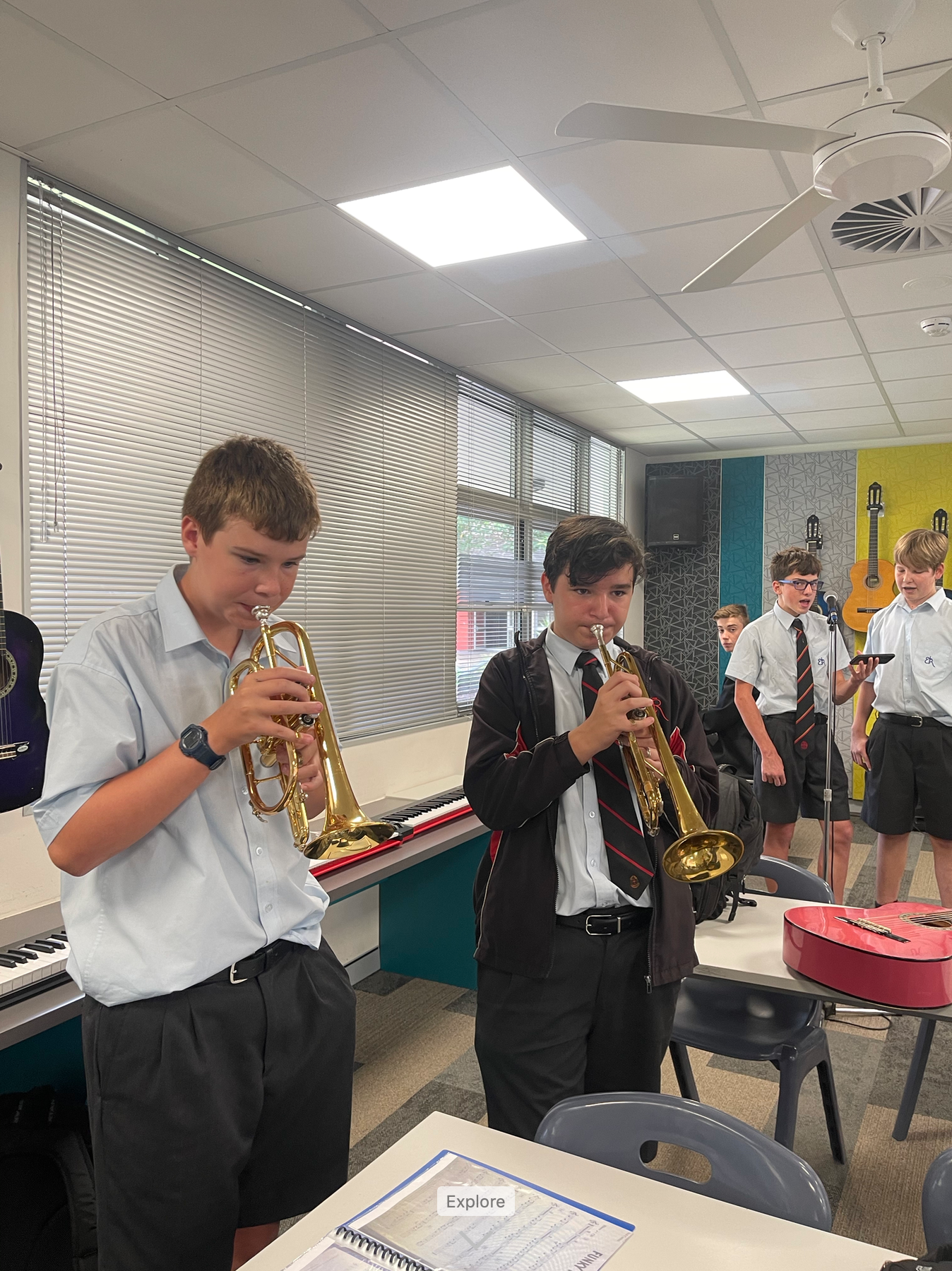 |
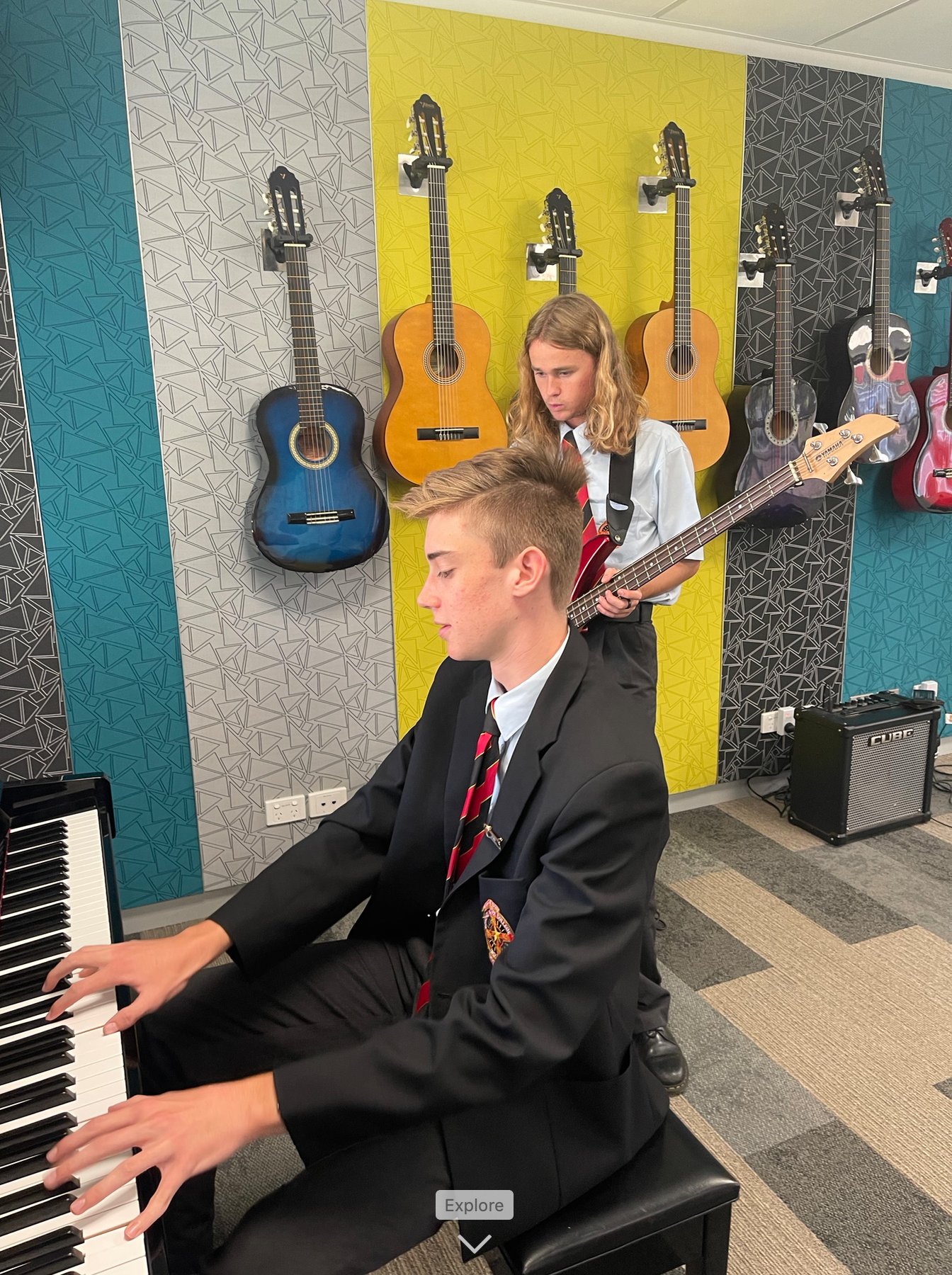 |
Ms Costello
Head of Creative Arts
